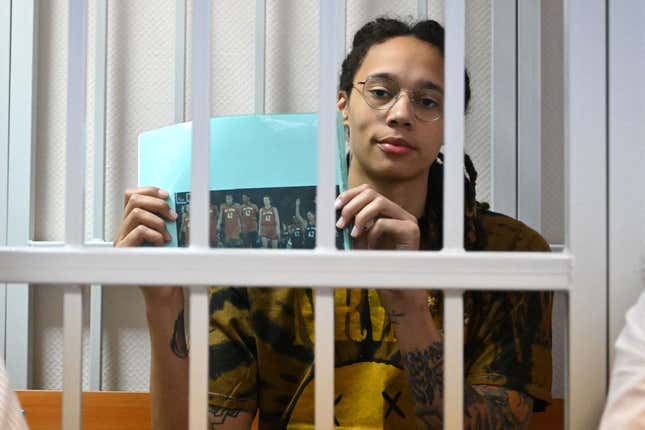
The over 75-day detainment of WNBA Star Brittney Griner in Russia has awoken much of the American public to the complex nature of prisoner exchanges with other countries. Griner’s legal team is working on her case until court resumes on July 26. In the meantime, many ask what the Biden administration can do in the interim. President Biden signed an executive order to stop wrongful detentions abroad and punish countries that do so, ABC News reports.
Due to the executive order, the 2020 Robert Levinson Hostage Recovery and Hostage-Taking Accountability Act is now codified into law. The federal government will have more authority to impose financial sanctions and visa bans on those involved in wrongful detaining Americans abroad. Government agencies will be directed to improve engagement with those Americans’ families, including sharing intelligence information about their loved ones and the government’s efforts to free them.
“Our goal is to bring folks home, so we use the sanctions authority with a primary focus on helping to secure a loved ones’ release,” a third senior administration said. “Now using sanctions may not always help secure someone’s release so we will therefore be judicious and strategic in our use of this authority.”
Another new part of this executive order is the travel designations issued by the state department to alert Americans. They are as follows:
“The Letter D” will be placed on countries where there’s a risk of wrongful detentions of Americans by foreign governments.
“Level 3" means to “reconsider travel.” That destination is an advisory for countries like China.
“Level 4" means “do not travel. Countries like Russia, Iran, and Venezuela also have the “K” warning indicator for the risk of kidnapping and hostage-taking.
However, some families believe these efforts are not going far now. Families who currently have loved ones detailed could not ask questions or engage officials directly on Monday’s call discussing the executive order. As Jonathan Franks, the spokesperson for the Bring Our Families Home Campaign, indicates, the families continue to await a reply to their requests for meetings with President Biden.”
“We’ve gone on record and asked that the White House engages with families more directly, and, once again, we were given a group call ... and we ended the call with nothing constructive on our hostages,” Neda Shargi, sister of Emad Shargi, an Iranian-American businessman detained in Tehran in 2018.



